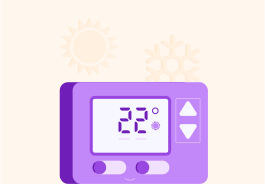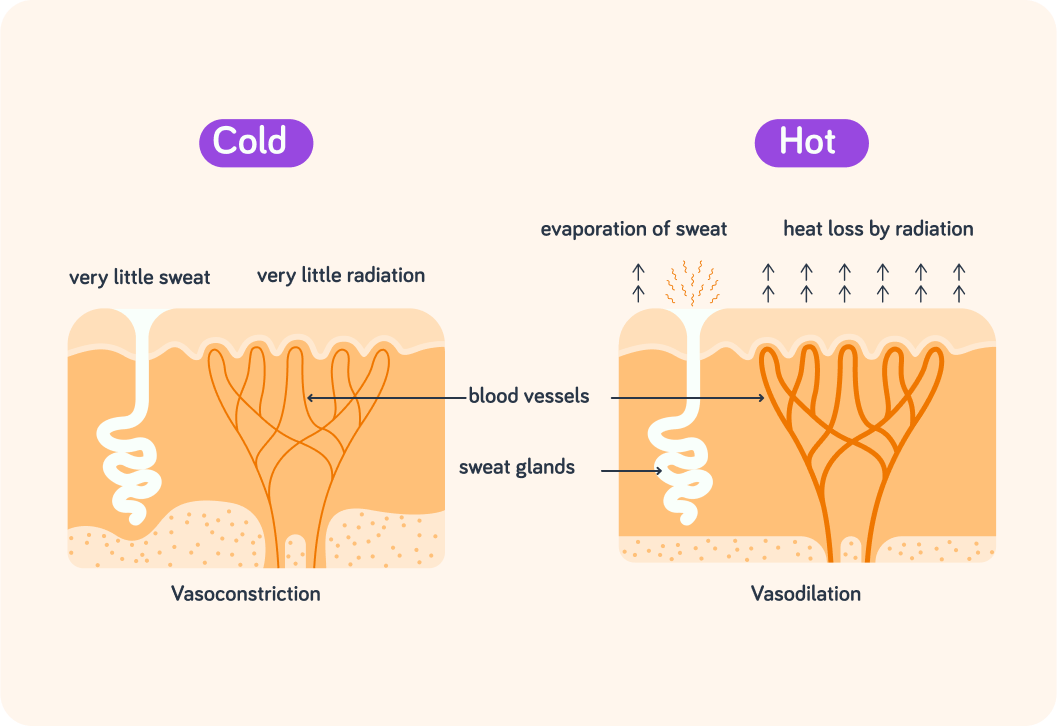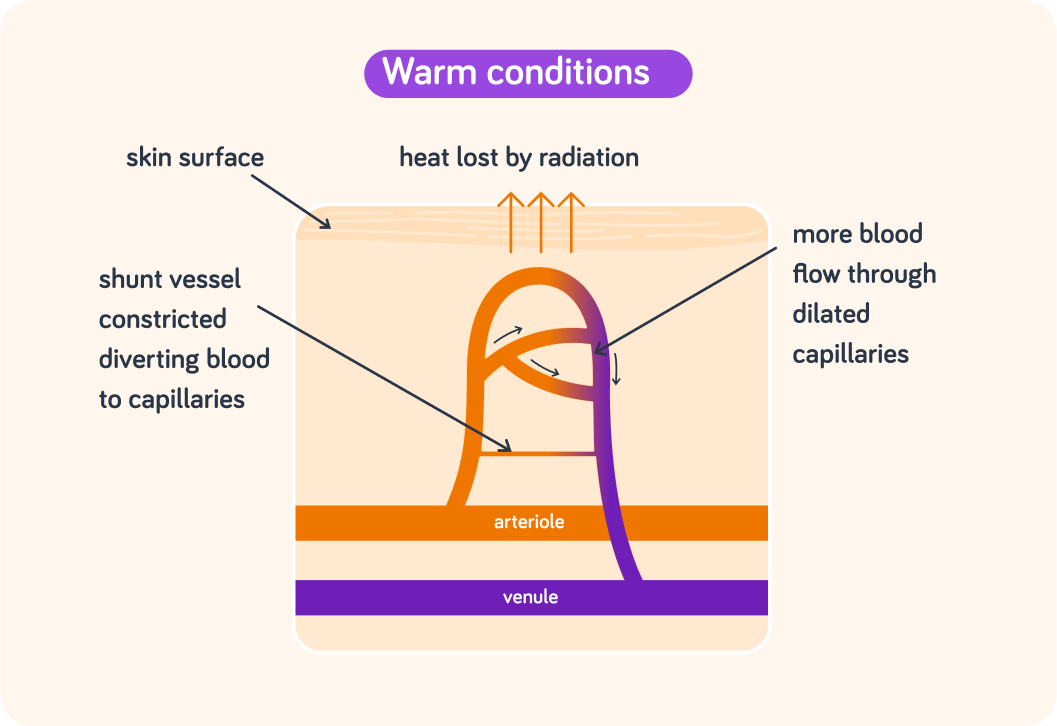YOU ARE LEARNING:
Centralised Thermoregulation

Centralised Thermoregulation
There are other thermoregulatory responses that can take place in response to cold and hot.
Which of the following do you notice when you're cold?

You can select multiple answers
Why do you think your body sweats?

Temperature receptors in the skin send impulses to the thermoregulatory centre in the hypothalamus **** (in the brain). Impulses are then sent back to the skin to help lose heat if it's hot, or keep heat in if it's cold.

Why do you think the capillaries in the skin are wider when it's hot?

Warm conditions
When it's hot, the body needs to lose heat to the surroundings. This cools the body down to keep its temperature the relatively constant 37 °C. This is done in two ways:

Vasodilation
Blood vessels that supply the capillaries in the skin will dilate (become wider). This transfers more heat energy by radiation from your body to the surroundings.

Sweating
Sweat glands in your skin produce more sweat. The evaporation of sweat is a cooling action, transferring more heat to the environment.

Which two methods of heat transfer are not involved when vasodilation helps to cool the body down?

You can select multiple answers
Cold conditions
When it's cold, the body needs to keep heat and not lose it to the surroundings. This warms the body to keep its temperature the relatively constant 37 °C. This is done in three ways:

Vasoconstriction
The blood vessels that supply the capillaries in the skin will constrict (become narrower). This reduces heat loss to the surroundings by radiation.

Less sweat
The body does not sweat as much. This means there is less sweat to evaporate, so less heat is lost to the surroundings.

Shivering
The skeletal muscles relax and contract quickly and automatically, causing shivering. This needs lots of respiration (an exothermic process), which raises your body temperature.

Which of the following does not happen when the body's temperature rises?

